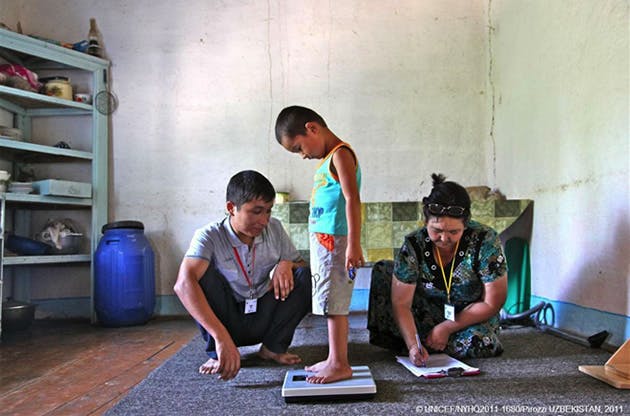Every year, UNICEF gathers global and national statistics for its State of the World’s Children report — tracking things like access to clean water, education, and vaccines — to improve children’s lives worldwide.
Of course, facts and numbers do not, of themselves, change the world. They make change possible – by identifying needs, supporting advocacy, and measuring progress. Digging deeper into these numbers reveals much about gaps between wealthy and poor children in terms of their health, rights and quality of life.

UNICEF has been publishing this data for 30 years, giving us an opportunity to see how far we’ve come, and how much further we’ll still need to go:
Then: We promised that every girl and boy has the right to survive and be healthy.
Now: Fewer children now die before their 5th birthdays, but about 18,000 children still died every day in 2012, mostly of preventable causes.
Then: We promised that every child should have a name and an identity.
Now: Nearly 230 million children under 5 have never been registered. Officially, these children do not exist. (Editor’s note: Learn more about the Girls Count Act of 2013)
Then: We promised that every girl and every boy has a right to an education.
Now: More girls are in school than ever before, but still about 31 million girls of primary school age were out of school in 2011.
It’s more than just numbers. It is real life for children everywhere. “Data tell stories about how children are born and cared for, how they grow and learn, and how they work, connect with others, and make their way in the world,” says UNICEF.
Take Action Challenge
Only have a few seconds to spare? Spread the word by sharing one of the facts below on Facebook or Twitter.
1. Poorest children in sub-Saharan Africa are 4.5x less likely to go to primary school than richest http://uni.cf/data #data4children
2. World’s poorest children 2.7x less likely than richest to have a skilled attendant at their birth http://uni.cf/data #data4children
3. Only 39% of rural households in #Niger have access to safe drinking water compared with 100% of urban http://uni.cf/data #data4children
4. Only 4% of poorest Tanzanians are registered at birth, compared to 56% of richest http://uni.cf/data #data4children
5. In #Chad, only 44 girls gain entry to secondary school for every 100 boys http://uni.cf/data #data4children @UNICEF
Learn more by browsing the report here.



 View All Blog Posts
View All Blog Posts